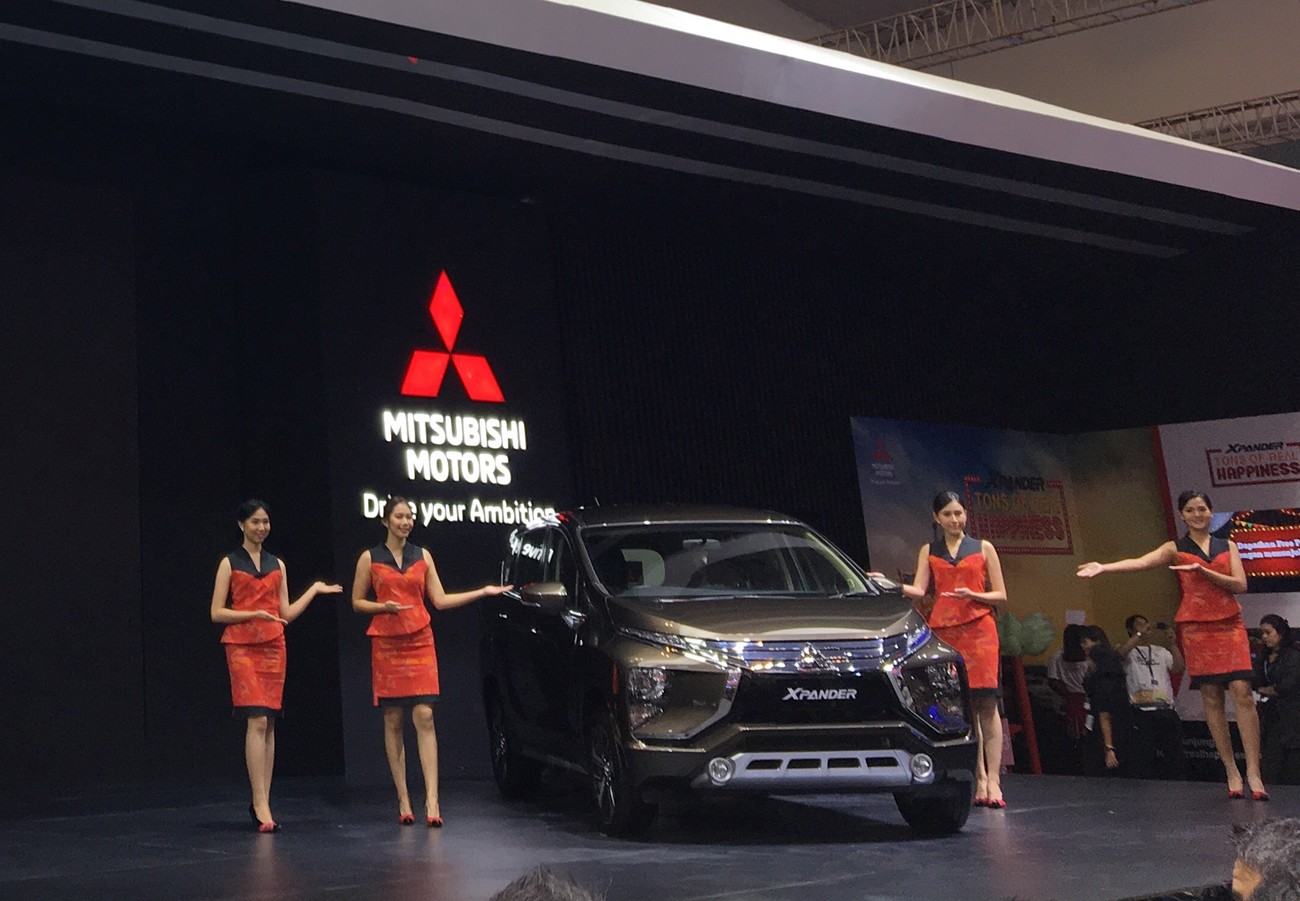Popular Reads
Top Results
Can't find what you're looking for?
View all search resultsPopular Reads
Top Results
Can't find what you're looking for?
View all search resultsCommentary: Forget electric cars, Indonesia still uses leaded gasoline
Jokowi ordered Pertamina to reproduce the already phased out Premium leaded gasoline.
Change text size
Gift Premium Articles
to Anyone
M
ost Indonesians have these considerations when they are about to buy a car: cheap, can accommodate a big family (favorably seven-seater), fuel efficient (preferably cheaper leaded gasoline), low maintenance fees, smooth after-sales service and good resale price.
Therefore, when it comes to a car exhibition, producers that meet those criteria will be visited the most. The ongoing Gaikindo Indonesia International Automotive Show (GIIAS) at the International Convention Exhibition (ICE) in BSD City, Tangerang, is no exception.
Visitors have sought information about multi-purpose vehicles (MVPs) or mini-MVPs — the favorite types of passenger cars for Indonesians.
Indonesia has an average production of 1.1 million cars per year, the second-largest in Southeast Asia after Thailand, whose annual production reached 2 million, but the domestic market is still dominated by Java and Bali.
The Trans Java toll road — which will be completed this year — is expected to boost sales. However, demand from outside Java Island, especially Kalimantan and Sulawesi, is growing at a faster pace driven by demand from first-time owners.
Indonesia’s automotive industry contributed 6.53 percent to gross domestic product (GDP) in 2017 and ranked fourth in the country’s non-oil and gas exports during the first half of this year, with a total value of US$3.45 billion.
But the local automotive market has not shown any signs of recovery in recent years. The Association of Indonesian Automotive Manufacturers (Gaikindo) had to lower its sales target to 1.1 million from the original 1.3 million, and even that figure is only slightly higher than last year’s sales of 1.07 million units.
Manufacturers said this year would be challenging amid global uncertainty as the rupiah depreciation had triggered a rise in production costs, which increased the selling prices for vehicles.
In terms of technology, Indonesia remains far behind major carmakers in Asia, namely Japan, South Korea and China. While these three countries have developed electric cars as well as self-driving cars, Indonesia is stuck with using leaded and unleaded gasoline.
President Joko “Jokowi” Widodo addressed the global challenges in the automotive industry during his opening speech at GIIAS last week, highlighting automotive technology disruptions, short-term risks and rise in the production of electric cars.
However, Jokowi also ordered state oil company Pertamina to reproduce the already phased out Premium leaded gasoline — a policy that contradicted his earlier decision. The leaded gasoline contributed to a rising energy subsidy, estimated to reach Rp 127.7 trillion ($10.22 billion) this year, or 0.2 percent of GDP, because of increasing global oil prices.
Last year, the government spent Rp 97.6 trillion on energy subsidies, or nearly 9 percent more than the amount allocated in the 2017 state budget, which was Rp 89.9 trillion. It also targeted to have 20 percent of all vehicles be electric cars by 2025, preparing several incentives for domestic players to develop the technology, such as a lower luxury goods tax for luxury cars entering the market.
The domestic manufacturing of automotive components will also be affected, whether car sales increase or decrease. With 70 percent of components being produced at home, the supporting industry plays a big role in reducing the automotive sector and the rupiah depreciation.
The automotive industry should not exclude commercial vehicles as they play a great part in logistics distribution.
Jokowi also said the government would expand its 20 percent biodiesel mix ( B20 ) policy, making B20 mandatory for both subsidized and non-subsidized diesel fuel. He argued the policy would save up to $5.9 billion a year in foreign exchange by reducing fuel imports.
Currently, the B20 mix is only mandatory for subsidized diesel fuel, commonly known as Solar, a product of state-owned energy giant Pertamina. With an expanded biodiesel policy, the B20 mix would also be mandatory for nonsubsidized diesel fuel.
But truck associations have voiced their objections to the policy, questioning whether B20 would be compatible with their older-generation vehicles. The association asked the government to listen to their concerns before rushing to implement the policy.
B20’s compatibility with trucks is crucial as it will affect the transportation of goods across Indonesia, mostly in Sumatra, Java and Bali, and it will have a snowball effect should it be disrupted.
The automotive industry’s problems do not only revolve around production and sales. The government needs a blueprint — designed together with industry players and related sectors — to develop the industry if it really wants to produce electric cars seven years from now. The government needs to be committed to implementing its policies regardless of whether they are unpopular among the people.
For now, the government should continue its plan to phase out leaded gasoline for the sake of the industry and raise awareness that diesel is not good for engines. It is an unpopular measure but it is best for the future of this country.











